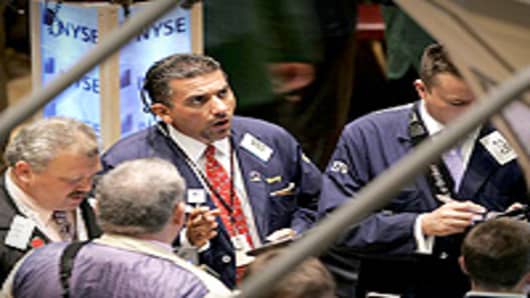If a history is a guide, the stock market is likely to see just small gains in the months following any debt ceiling increase.
Politicians are haggling over the details, but the markets are convinced a deal to raise the debt ceiling will come at the last possible minute, along with some sort of deficit reduction plan.
"We still believe the discord represents high drama, and low risk, but acknowledge that the thought of the unthinkable may cause investors to do the unfortunate by selling stock and putting additional pressure on equity prices," writes Sam Stovall, chief investment strategist at Standard & Poor's Equity Research.



